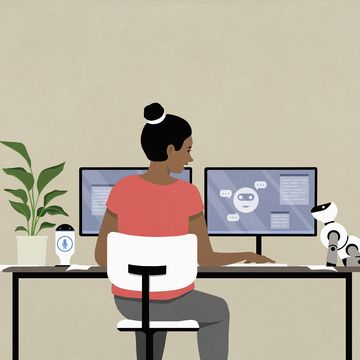It’s now easier for occasional, freelance or agency workers to check they’re being paid the right amount thanks to new legislation that means all workers must now receive a payslip.
Previously, only employees were entitled to receive a payslip. ‘Workers’, on the other hand, (which includes anyone on a zero-hours contract) didn't have an automatic right to receive written confirmation of what they'd been paid. But not having access to a payslip can make it harder to make sure you're getting what you're owed.
Who stands to benefit?
The move is expected to benefit women, in particular, who are more than twice as likely as their male colleagues not to query bosses over pay, according to government figures. Women are also more likely to be on a zero-hours contract than men, according to research by the Office for National Statistics.
Young people also stand to benefit from the new rules, as one in five 16-24-year-olds does not currently receive a payslip.
As well as providing more clarity about earnings, the changes should make it easier for workers to rent or buy a house, claim benefits or get a visa to visit another country, as they'll now have official proof of income.
Employee or worker?
If you're an employee, you already have an automatic right to a payslip, alongside sick pay, protection against unfair dismissal and holiday allowance. You'll also have an employment contract.
Anyone who doesn't have a minimum number of working hours per week is defined as a worker. The information at gov.uk/employment-status will help you work out whether you're an employee or a worker, if you're unsure. Contact your HP department to find out how to access your payslip if it's issued digitally rather than as a hard copy.
Make sense of your payslip
Whether you are an employee or a worker, it's important to check your payslip regularly, instead of assuming your employer has got your pay and deductions correct, advises employment lawyer, Gillian Howard. 'This may not be the case, either because payroll has the wrong information or they have misunderstood the wages and allowances. It is essential to check your payslips every week or month to make sure the pay from your employer is absolutely correct.'
In the UK, your payslip must include:
- Earnings before and after deductions
- The amount that has been deducted for things such as National Insurance and tax
- The number of hours you have worked
It may also show your National Insurance and employee numbers, your tax code, benefits including health insurance and any expenses paid to you. But only 62% of workers say they understand all of the information on their payslip, according to research by the Department for Business, Energy and Industrial Strategy. And that figure drops to 55% for women.
To help make sense of the information on your payslip, use the information at moneyadviceservice.org.uk/understanding-your-payslip.
Sign up HERE for our free fortnightly Financially Fabulous newsletter for money-saving tips.













